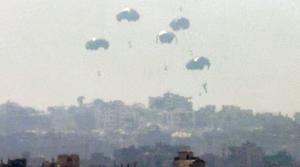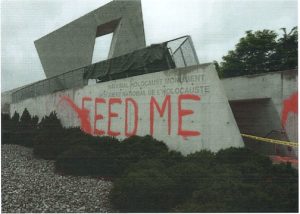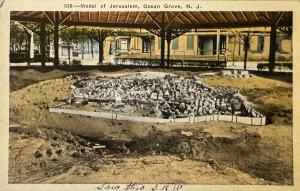 Israel has come a long way in its 60 years and has accomplished much to be proud of. It has made the desert bloom and gone from a fledgling agricultural economy to a leading technological nation.
Israel has come a long way in its 60 years and has accomplished much to be proud of. It has made the desert bloom and gone from a fledgling agricultural economy to a leading technological nation.
It has seen wars fought on its land and has withstood and debunked accusations of racism. It has provided a haven to Jews from around the world and has gone to extraordinary lengths to protect those in need.
Born as the homeland of the Jewish nation, though, its place as the historical bastion of the Jews can no longer be taken for granted.
I went to the Community Hebrew Academy of Toronto. I was taught the same historical narrative that many of you undoubtedly recognize: Britain tried to discourage the establishment of Israel; the fledgling Jewish state faced a militarily superior and united Arab army; the Palestinians abandoned their homes and fled their villages of their own volition and were even encouraged to do so by scheming Arab leaders; the Israeli army has subsequently practised a “purity of arms” that’s unparalleled in the world.
Despite this account, or perhaps because of it, there exists a tremendous narrative gap between the Zionist version of azma’ut and shichrur – independence from the British and liberation from the Diaspora, respectively – and the Palestinian tale of “al Naqba” – meaning, literally, the catastrophe. Much of the cause for the current divide between the two communities can be attributed to the discrepancies between these two versions of history.
One of my classes at Dalhousie University is a course on critical theory of history. Much of the year in this class has been spent deconstructing the relationship between west and east. When, for the final paper, I was given the chance to write about Israel, I took it. I wasn’t sure exactly what I would learn, but, being well aware of both the traditional historiography of the founding of the state and the contemporary political situation, I was positive that there was more to the story.
Israel – like Canada, the United States and Britain – declassifies sensitive government documents 30 years after the fact. In light of such declassified documents, a revisionist school of Israeli historiography has emerged that is challenging the traditional version of events. While the members of this school often reject the title, such historians have been labelled “new historians,” and much of their thought has been deemed “post-Zionist.”
These new historians have endeavoured to rethink Israeli history with an awareness of the influence of the Zionist project on the traditional narrative. By doing so, they have tried to create a more equitable joint narrative and eliminate the contradiction in terms that exists between the Zionists’ “liberation” and the Palestinians’ “catastrophe” that has dogged the peace process throughout.
Within the camp of new historians, however, there is a great range of debate. New historians, in general, see the legitimacy of both peoples’ claims and, all things considered, place a certain level of blame on all parties involved: Israel, the Palestinians, Arab countries and the West.
This new academic approach is far from wholly accepted in Israel, but it is making important inroads.
Meretz MK Zahava Gal-On wrote a letter recently to Education Minister Yuli Tamir insisting that students be taught dark chapters from Israel’s past. She has asked the government to consider returning the study of the Kafr Kassem massacre – in which 47 Israeli Arabs were murdered in 1956 – to the civics curriculum. The issue was first raised in 1999, when then-education minister Yossi Sarid urged teachers to force students to come to terms with “ugly stains” of history, as he called them. At the same time, textbooks used in elementary schools began to question the traditional historiography of the 1948 War of Independence and tacitly acknowledged the expulsion of Palestinians.
Far be it for me to tell anyone what paradigm to use when looking at Israeli history. The debate between traditional historians and the new academics is far from settled, and many historical truths, on both sides, have yet to be uncovered.
But, to paraphrase historian Benny Morris – perhaps the dean of the “new historians” – after 60 years, Israel is strong enough as a state and Israelis are mature enough as a people to admit their mistakes.






